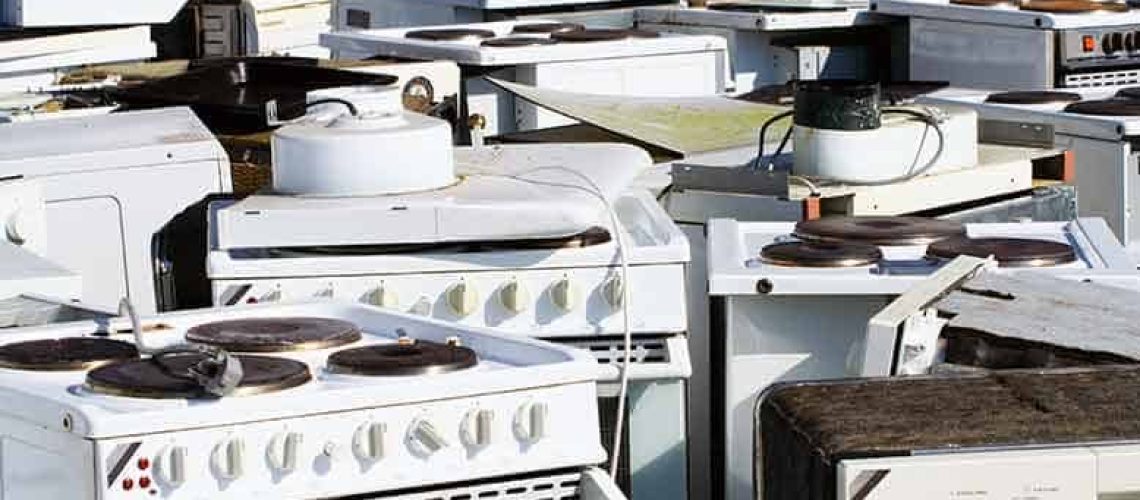As time marches on, so do the appliances and systems that make a house a home. While longevity is a testament to the durability of these fixtures, aging appliances and outdated systems can present safety concerns that require careful inspection. Home inspectors, equipped with a discerning eye and knowledge of potential risks, play a vital role in uncovering safety issues associated with aging components. In this comprehensive guide, we’ll delve into the most common safety concerns that home inspectors frequently discover, emphasizing the critical importance of addressing these issues for a safe and secure living environment.
1. Electrical System Obsolescence
Issue: Outdated Wiring and Electrical Components
Aging homes often come with outdated electrical systems, including wiring and components that may not meet current safety standards. Home inspectors frequently uncover issues such as knob-and-tube wiring, outdated fuse boxes, or overloaded circuits.
Why It Matters:
Outdated electrical systems increase the risk of electrical fires, shocks, and malfunctions. Home inspectors stress the need for updating electrical systems to meet modern safety codes, ensuring the safety of the home’s occupants.
2. Fire Hazards from Old Wiring
Issue: Aging Wiring and Insulation Prone to Deterioration
Wiring that has aged and insulation that has deteriorated pose significant fire hazards. Home inspectors often identify signs of wear and tear on wiring during their examinations.
Why It Matters:
Deteriorating wiring and insulation increase the risk of short circuits, electrical arcs, and fires. Home inspectors emphasize the importance of replacing aging wiring to mitigate fire hazards and enhance electrical safety.
3. Gas Appliance Concerns
Issue: Aging Gas Appliances and Lines
Gas appliances, including furnaces, water heaters, and stoves, have a finite lifespan. Aging gas lines and appliances can develop leaks or malfunctions, presenting safety risks such as gas leaks or carbon monoxide emissions.
Why It Matters:
Gas leaks pose immediate risks of fire or explosion, while malfunctioning gas appliances can release carbon monoxide, a colorless and odorless gas that can be lethal. Home inspectors prioritize identifying aging gas appliances and recommending necessary repairs or replacements.
4. Inefficient Heating and Cooling Systems
Issue: Outdated HVAC Systems and Inefficiencies
Aging heating, ventilation, and air conditioning (HVAC) systems may become inefficient over time, leading to increased energy consumption and potential safety hazards. Home inspectors often identify issues such as faulty pilot lights, worn-out components, or inadequate ventilation.
Why It Matters:
Inefficient HVAC systems can result in higher utility bills, uneven heating or cooling, and potential safety hazards. Home inspectors stress the importance of upgrading or maintaining aging HVAC systems to ensure optimal efficiency and safety.
5. Plumbing Problems in Older Homes
Issue: Deterioration of Plumbing Systems
Older homes may have plumbing systems with aging pipes, corroded joints, or outdated materials. Home inspectors frequently uncover issues such as leaks, water damage, or reduced water pressure.
Why It Matters:
Deteriorating plumbing systems can lead to water damage, mold growth, and structural issues. Home inspectors recommend addressing aging plumbing components to prevent leaks, ensure water quality, and maintain the integrity of the home.
6. Obsolete Appliances and Safety Features
Issue: Outdated Appliances and Safety Systems
Homes with outdated appliances and safety features may lack the advancements that modern technology provides. Home inspectors often identify issues with obsolete smoke detectors, outdated kitchen appliances, or non-compliant safety features.
Why It Matters:
Outdated appliances and safety systems may not provide the level of protection needed in case of emergencies. Home inspectors stress the importance of upgrading to modern appliances and safety features to enhance the overall safety of the home.
7. Lack of Energy Efficiency
Issue: Inefficient Energy Consumption in Aging Systems
Aging appliances and systems tend to be less energy-efficient than their modern counterparts. Home inspectors often identify outdated insulation, windows, or appliances that contribute to energy waste.
Why It Matters:
Inefficient energy consumption not only leads to higher utility bills but also contributes to environmental impact. Home inspectors recommend upgrades to improve energy efficiency, reduce utility costs, and minimize the carbon footprint of the home.
8. Outdated Insulation and Ventilation
Issue: Inadequate Insulation and Ventilation in Older Homes
Aging homes may have insulation and ventilation systems that fall short of current standards. Insufficient insulation and ventilation can result in energy loss, moisture buildup, and indoor air quality issues.
Why It Matters:
Inadequate insulation and ventilation can lead to uncomfortable living conditions, mold growth, and respiratory problems. Home inspectors stress the importance of upgrading insulation and ventilation systems to ensure energy efficiency and a healthy indoor environment.
9. Security System Vulnerabilities
Issue: Outdated or Nonfunctional Security Systems
Homes with outdated or malfunctioning security systems may be more vulnerable to break-ins or security breaches. Home inspectors often identify issues with old alarm systems, ineffective locks, or outdated surveillance technology.
Why It Matters:
A lack of effective security systems increases the risk of unauthorized access and compromises the safety of the home’s occupants. Home inspectors recommend upgrading to modern security features to enhance overall safety and protection.
10. Fireplace and Chimney Concerns
Issue: Aging Fireplaces and Chimneys in Older Homes
Older homes with fireplaces and chimneys may have components that have deteriorated over time. Home inspectors often uncover issues such as cracked chimneys, damaged flue liners, or outdated fireplace materials.
Why It Matters:
Aging fireplaces and chimneys pose fire hazards and risks of carbon monoxide exposure. Home inspectors stress the importance of regular inspections and maintenance to ensure the safe operation of these heating features.
Conclusion
The aging process affects not only the physical appearance of a home but also its vital systems and appliances. Home inspectors, with their trained eyes and knowledge of safety standards, play a crucial role in uncovering potential hazards associated with aging components. From outdated electrical systems to aging appliances and safety features, addressing these common concerns is paramount for creating a safe, comfortable, and efficient living environment. In the realm of homeownership, proactive measures, regular inspections, and timely upgrades are key to mitigating the risks associated with aging appliances and outdated systems, ensuring the safety and well-being of all occupants.
To learn more about the most common safety issues discovered by home inspectors, check out our article “Safeguarding Homes: Common Safety Issues Uncovered by Home Inspectors“.


